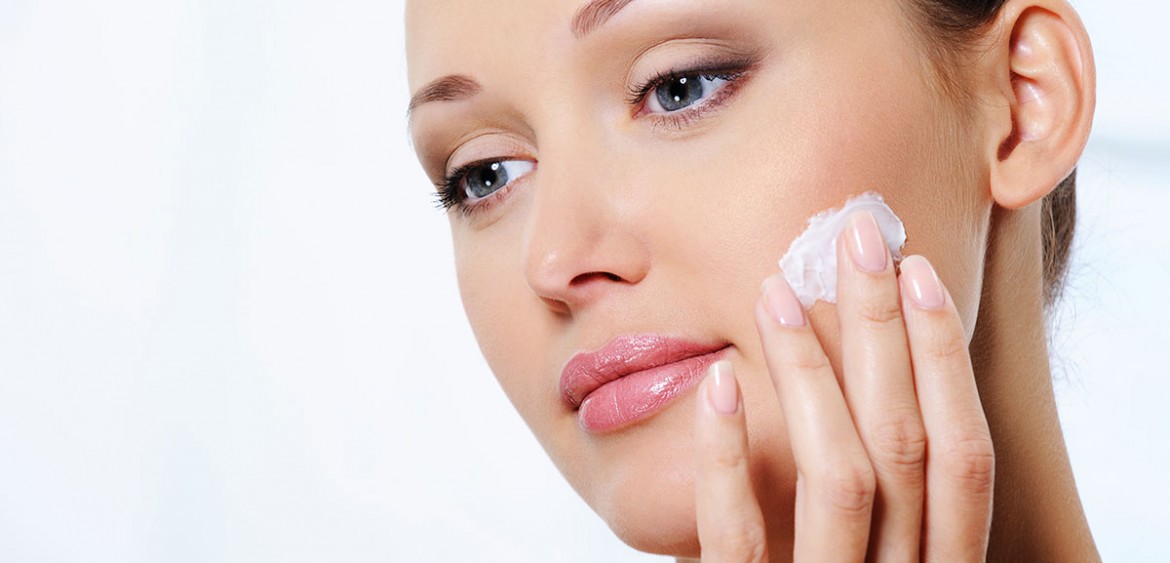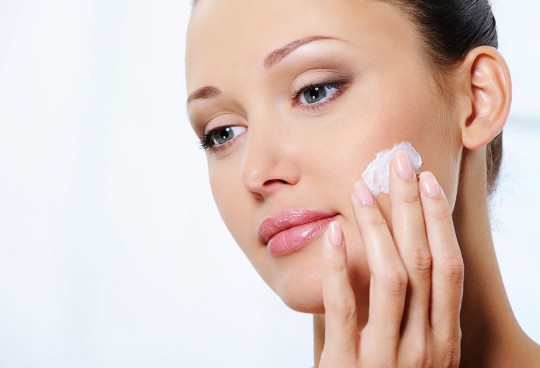Moisturisers form the basis of most skin care regimes but many patients are unsure of the role they play. Furthermore the multitude of products available causes confusion and uncertainty. My patients often ask questions such as:
- Do I need a moisturiser?
- What moisturiser should I use?
- Will it improve my skin? (and make me look younger?)
To help answer these questions and resolve the uncertainty surrounding moisturiser’s it is worth looking at some basic science …
Skin structure – the epidermis
The outer surface of the skin, the epidermis, is a multi-cell layered structure. The outermost layer of the epidermis, the stratum corneum, comprises a protein enriched cellular component embedded within a lipid rich matrix. Together this protein and lipid rich structure forms the “epidermal barrier” which functions to
- retain water and electrolytes within the body – essential for survival!
- provides strength and rigidity – to protect our skin from injury
- acts as a barrier to infections and toxins
When the water content of the stratum corneum drops below a certain level (approx. 10%) its barrier function is compromised.
Apart from its critical physiological role, our skin also fulfils an important aesthetic role as its appearance influences our psychological wellbeing and vitality.
The function of a moisturiser is to restore normal hydration and lipid content in the epidermis, and thus maintain a normal epidermal barrier function. From an aesthetic view point moisturisers hydrate and soften the epidermis, smoothening lines and imparting a healthy lustre, albeit temporarily. Therefore if you suffer from dry skin then a moisturiser will definitely be beneficial. This is particularly important for people who suffer from certain skin diseases including eczema and ichythyoses. However not everyone benefits, particularly acne sufferers with oily skin. In these individuals, excessive use of moisturisers will block the pores causing more comedones and breakouts.
[su_youtube url=”https://youtu.be/SY8kIzQsZQ4″]
How do moisturisers work?
Moisturisers contain humectants, occlusives, and emollients – these are the main active components. They also contain emulsifiers which are required for blending, as well as preservatives and fragrance.
- Humectants are substances that attract water molecules and in this way they hydrate the epidermis and stratum corneum. Glycerin (glycerol) is a common humectant in moisturisers. Others include propylene glycol, hyaluronic acid and even honey, vitamin A and C and some proteins.
- Occlusives on the other hand, increase hydration of the skin by slowing the evaporation of water from the skin and are an essential component of moisturisers. They include oily or waxy substances such as the older style occlusives petrolatum and lanolin. These have been replaced to some extent by more cosmetically acceptable occlusives like dimethicone and other silicone oil derivatives.
- Emollients are lipids or oils in moisturisers that contribute to the lipid component of the epidermal barrier, filling the spaces between the cellular compartment. In addition, emollients impart a smooth and soft feel to the epidermis.
What moisturiser should I use?
The choice of moisturisers is vast and increasing almost daily. Chemists, supermarkets and department stores offer products for all consumers from the most budget conscious to those who desire a high end luxury item. When choosing a body moisturiser, most dermatologists agree that lower priced products are perfectly adequate for individuals with dry skin conditions. Similarly, expensive facial moisturisers are probably not a whole lot more effective (if at all) than cheaper products. Certainly the expensive items often feel wonderful on the skin but it is debatable whether this is truly a reflection of superior quality or just a psychological phenomenon.
Will a moisturiser improve my skin (and make me look younger)?
Moisturisers hydrate, soften and smooth the skin (including fine lines) and improve its appearance, although this effect is just a temporary one. The longer term anti-ageing effect of moisturisers has been the focus of many celebrity endorsed advertising campaigns. The youth-restoring properties of these are attributed to substances such as retinols and an increasingly large number of anti-oxidants including vitamin C and green tea polyphenols. Unfortunately, there is a lack of scientific evidence with which to validate most of these claims. Nonetheless this is a very interesting area of research and I will discuss this in more detail in a later news article.




Sorry, the comment form is closed at this time.